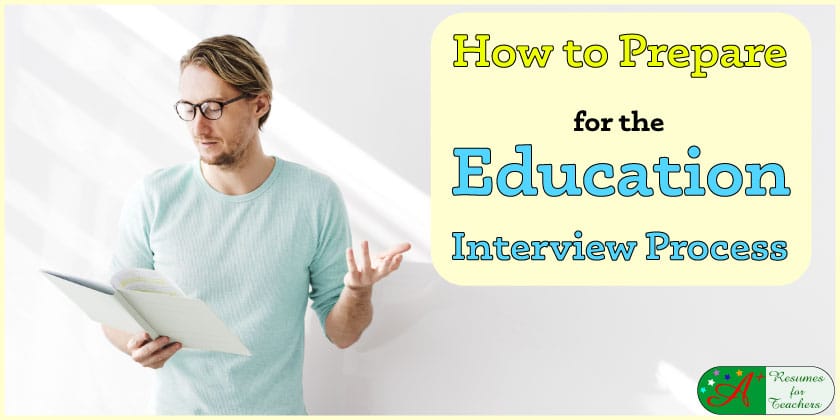Preparing for an education interview is a critical step toward securing your desired teaching position. Success in the interview hinges on thorough preparation and a clear understanding of what to expect. Unlike many other fields, education interviews often involve more than just answering questions; you may be asked to showcase your teaching skills through a lesson demonstration. Below, we’ll break down the key steps to help you excel and leave a lasting impression on your interviewers.
Understand the Interview Components
An education interview typically includes several elements:
- Standard Interview Questions: These can cover topics such as your teaching philosophy, classroom management strategies, and approaches to student engagement.
- Panel Interviews: You may be interviewed by a panel that includes the principal, other educators, and, sometimes, even parents.
- Demo Lesson: Most teaching interviews require you to demonstrate your teaching ability with a lesson in front of students, interviewers, or both. This aspect showcases your ability to plan, execute, and adapt your teaching in real time.
Knowing these components helps you focus your preparation efforts and address all aspects of the interview effectively.
Preparing for the Demo Lesson
The demo lesson is often the most intimidating part of the process, but with preparation, it can be your opportunity to shine. Here’s how to tackle it:
Gather Key Information
Before crafting your lesson plan, gather as much information as possible:
- Student Demographics: Ask about students’ ages, grade levels, and prior knowledge.
- Learning Objectives: Clarify what goals the school expects you to achieve during the lesson.
- Time Frame: Ensure you know how much time you must teach.
Create an Engaging Lesson Plan
Once you have the necessary details, design a lesson that aligns with the school’s standards and objectives. Consider these strategies:
Start with a Hook: Begin with a creative and engaging activity to capture students’ attention. For example, if teaching fractions to fourth graders, you could use a pizza-cutting activity to introduce the concept visually.
Incorporate Active Learning: Plan activities encouraging student participation, such as group discussions, hands-on tasks, or problem-solving exercises.
Assess Understanding: Include moments to check for understanding, such as asking targeted questions or using a quick formative assessment.
Rehearse Your Lesson
Practice your lesson multiple times, ideally in front of a friend, family member, or colleague who can provide feedback. Conduct a trial run with actual students to fine-tune your pacing and delivery if possible.
Manage Nerves and Expectations
Remember that interviewers are not expecting perfection. What they want to see is:
- Your ability to engage students.
- Clear and logical lesson progression.
- Effective classroom management techniques.
Research the School and District
Before the interview, invest time learning about the school and its community. Understanding the school’s culture and priorities will help you tailor your answers and demonstrate genuine interest.
Where to Look for Information
- School Website: Review the mission statement, academic programs, and extracurricular activities.
- District Website: Understand district-wide initiatives and goals.
- Social Media: Check for updates, achievements, and photos that provide insight into the school’s environment.
- Local Contacts: If you know parents, teachers, or other community members connected to the school, ask for their perspectives.
Key Points to Research
- Academic achievements and challenges.
- Special programs such as STEM, arts, or special education.
- Community involvement and partnerships.
- School policies on discipline and inclusivity.
Being well-informed allows you to tailor your responses to align with the school’s values and demonstrate your enthusiasm for the position.
Prepare for Standard Interview Questions
While the demo lesson is a significant part of the interview, answering questions confidently is equally essential. Here are common questions you might encounter and tips for responding:
Example Questions
What is your teaching philosophy?
Be specific and provide examples. For instance, “I believe in student-centered learning. In my previous classroom, I used project-based learning to empower students to explore real-world problems.”
How do you handle classroom management?
Share your strategies, such as setting clear expectations, building relationships, and using positive reinforcement. Example: “In my experience, praising positive behavior has reduced disruptions significantly.”
How do you differentiate instruction?
Highlight methods such as tiered assignments or technology integration to meet diverse learning needs.
Practice Makes Perfect
Practice answering these questions with a friend or mentor. Structure your answers using the STAR method (Situation, Task, Action, Result) to ensure clarity and depth.
Make a Positive Impression on the Interview Day
On the day of the interview, follow these tips to showcase your professionalism and enthusiasm:
Dress Professionally
Opt for neat, appropriate business attire that aligns with the school’s culture.
Bring Essential Materials
Prepare a portfolio that includes copies of your resume, lesson plan, references, and teaching artifacts, such as student work samples or classroom photos.
Be Punctual
Arrive early to allow time to settle and understand the school environment.
Show Enthusiasm
Smile, maintain eye contact, and express genuine excitement about the opportunity to join the school’s team.
Follow Up After the Interview
After the interview, send a personalized thank-you email to the interview panel or school representative. Express gratitude for the opportunity, reiterate your interest in the position, and briefly highlight how you can contribute to the school’s success.
Final Thoughts
Preparing for an education interview requires effort, but standing out as a strong candidate is well worth it. By researching the school, preparing an engaging demo lesson, and practicing your interview responses, you can approach the process with confidence. Remember, every interview is a learning experience that brings you closer to your dream teaching job.


